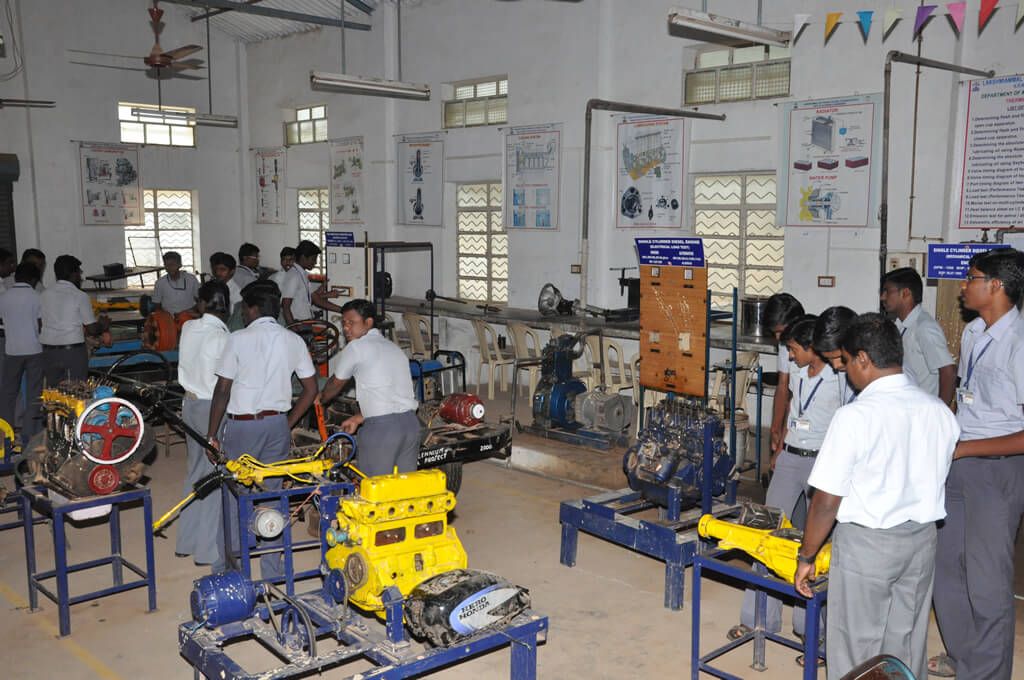The Future of Automobile Engineering: What Automobile Engineering Aspirants Should Focus Upon
Published On 22/7/2024, 9:18:27 am Author Prof. Atanu BanarjeeThe automobile sector is taking a paradigm shift, and so will change the way we teach automobile engineering. This transformation calls for an in-depth exploration of innovative technologies and methodologies. This means incorporating hands-on experience with the latest software tools, fostering a deep understanding of new materials and their properties, and emphasizing the importance of sustainability in engineering practices.

Fifteen years ago, when I started teaching Automobile Engineering as an assistant professor, it was a fairly niched-down trade, closely related to mechanical engineering. Career scopes were limited, yet automotive enthusiast kids studied it for the sake of cars. Back then, Computer Science and Engineering (CSE) was rising in trend. The core branches were still in demand, but I witnessed how the trend transitioned to CSE. In fact, in 2017, 60% of my students who got placements from Automobile Engineering ended up in IT sectors. Similar trends have continued. However, some of my students who joined automotive companies began working on features like Advanced Driver Assistance Systems (ADAS), connected mobility solutions, and others. The trend for learning software like CFD, Catia, and Ansys is declining.
According to recent statistics, there has been a 40% drop in the number of students enrolling in design-related software courses over the past five years. This shift highlights the growing importance of software and IT skills in the automotive industry. Despite this, the core principles of automobile engineering remain crucial.
The automobile is still fundamentally about the engine, the body, and the hard components in the engine bay and under the chassis. These core elements require deep expertise in traditional engineering disciplines such as thermodynamics, heat transfer, fluid mechanics, and materials science. Understanding how heat moves through an engine, how materials behave under stress, and how fluids flow through systems are all essential for designing and maintaining the vehicles of today and tomorrow.
Even as the industry evolves, these foundational skills remain vital. Whether you're designing a new combustion engine, optimizing an electric powertrain, or even developing sensors for autonomous vehicles, a solid grasp of these fundamental principles is necessary. For instance, creating a sensor to monitor engine conditions requires knowledge of how temperature and pressure affect engine performance. Similarly, understanding the aerodynamics of a vehicle body can significantly influence fuel efficiency and handling.
What you should focus upon
Modern vehicles now integrate sophisticated systems such as electric powertrains, autonomous driving technologies, and advanced connectivity features. This evolution is not only reshaping how vehicles are designed and manufactured but also how automobile engineering education is approached.
The University Grants Commission (UGC) is planning significant updates to engineering curricula to address these changes. These updates will incorporate advanced topics such as electric vehicle technology, autonomous systems, and connected mobility solutions. Students will be introduced to new subjects like machine learning applications in vehicle diagnostics, cybersecurity for connected vehicles, and sustainable manufacturing practices.
The traditional focus on mechanical components like engines and chassis will remain essential, but the curriculum will expand. Furthermore, practical training will be updated to reflect the latest industry practices. Laboratories and workshops will feature new tools and software for designing and testing electric and autonomous vehicles. This hands-on experience will ensure that graduates are well-prepared to enter a workforce that increasingly values multidisciplinary expertise.
My advise to aspiring automobile engineers
I want to reassure you that the field of automobile engineering is going to be relevant for at least the next 50 years. Despite the rapid advancements in technology and the changing job market, automobiles will continue to be an integral part of our lives, and skilled professionals will be needed to drive innovation and maintain these complex systems.
It's important to note that while Computer Science and Engineering (CSE) fields are experiencing a surge in interest, there are emerging challenges within that space. Many of my peers from CSE have expressed concerns about the oversaturation of the field and the potential impact of artificial intelligence (AI) on programming jobs.
Here are a few areas you should focus on to stay ahead:
Electric and Hybrid Vehicles: Learn about the technologies powering electric and hybrid vehicles, including battery systems, charging infrastructure, and energy management.
Autonomous Vehicles: Study the principles of autonomous driving, including sensor technology, computer vision, and decision-making algorithms.
Connected Mobility: Explore the integration of vehicles with smart infrastructure and the Internet of Things (IoT) to enhance connectivity and user experience.
AI and Machine Learning: Gain expertise in AI and ML applications relevant to automotive systems, such as predictive analytics, real-time data processing, and intelligent control systems.
Sustainable Engineering: Focus on sustainable practices and materials in automotive manufacturing to meet environmental regulations and consumer demands for eco-friendly vehicles.
- Professor Atanu Banarjee
















